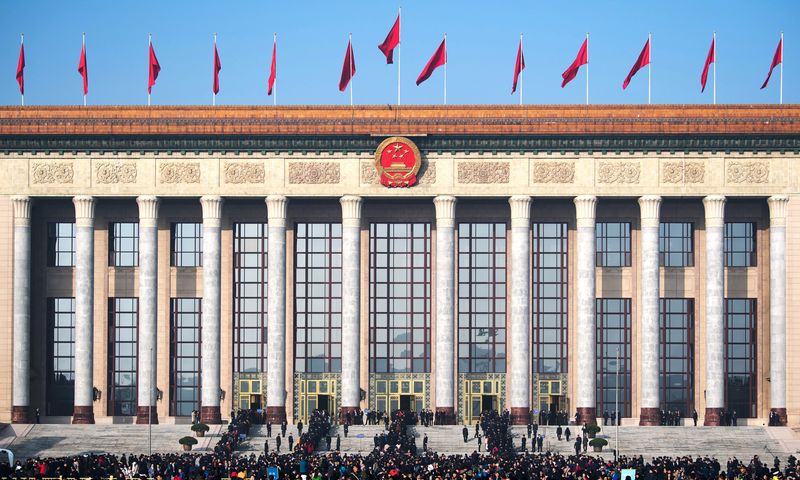Sanctions on 14 NPC officials 'direct confrontation' with China's highest organ of power
By Chen Qingqing Source: Global Times Published: 2020/12/8 11:01:34

The Great Hall of the People File photo: Xinhua
The US Treasury Department announced on Monday that it was imposing sanctions against 14 individuals - all vice chairs of the 13th National People's Congress (NPC) Standing Committee, over the Hong Kong issue. They include Wang Chen who first officially unveiled the national security law for Hong Kong in May. Other officials included Chen Zhu, Cao Jianming, Ding Zhongli, Imirbaki Arken and Zhang Chunxian. The sanctions aim to block the assets, impose restrictions on individual transactions and bar the officials from entering the US, according to media reports.
"This is a direct confrontation with China's top legislature, which shows that in his final weeks as the incumbent president of the US, the Trump administration has not given up in continuing to push forward its Cold War mentality toward China by escalating tensions, creating more problems for Biden," Tian Feilong, associate professor at Beihang University in Beijing and a member of the Beijing-based Chinese Association of Hong Kong and Macao Studies, told the Global Times on Tuesday.
Lau Siu-kai, vice president of the Chinese Association of Hong Kong and Macao Studies, called the latest sanctions the most serious political provocation from Washington over Hong Kong's affairs, but one that will have little practical impact.
The Chinese Foreign Ministry has repeatedly voiced strong opposition to the US' so-called Hong Kong-related laws and sanctions against Chinese officials, calling them blatant and reckless interference in China's internal affairs. Since the social turmoil was triggered by anti-government protests in Hong Kong in 2019, American lawmakers have come up with measures reacting to the national security law for Hong Kong, including signing the Hong Kong Autonomy Act, imposing sanctions on Hong Kong officials, and removing Hong Kong's special status.
The House of Representatives also voted Monday to welcome "Hong Kong residents to live temporarily in the US through Temporary Protected Status, vowing to be a beacon for rights as China clamps down in the territory," according to AFP.
Considering that the US has frequently played the Hong Kong card for political purposes, experts suggested it's time that the Chinese government came up with more relevant countermeasures, and there are multiple options open, such as further reducing staff numbers at the US consulate in Hong Kong and their scope of activities.
"Also, China can impose permanent sanctions against US lawmakers who propose Hong Kong-related bills and their relatives, and order the HKSAR government to strictly scrutinize those who seek so-called 'asylum status' and resolutely punish those who violate the relevant laws in Hong Kong but obtain the status in the US," Tian said.
The bipartisan bill was supported by a number of US lawmakers including Tom Malinowski, Ami Bera and Carolyn Maloney.